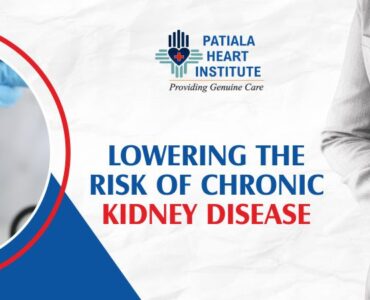The kidneys are vital organs responsible for filtering waste products, excess fluids, and toxins from the blood to produce urine. Beyond their role in waste elimination, kidneys also play crucial roles in maintaining fluid balance, regulating electrolytes, controlling blood pressure, and producing hormones that stimulate red blood cell production and regulate calcium metabolism.
Healthy kidneys are essential for overall health and well-being. When kidney function is compromised, it can lead to various health problems, including fluid retention, electrolyte imbalances, high blood pressure, anemia, and bone disease. Severe kidney dysfunction, known as kidney failure or end-stage renal disease (ESRD), requires dialysis or kidney transplantation to sustain life.
As “guardians” of kidney health, individuals play a crucial role in protecting and preserving the function of their kidneys. This concept emphasizes the importance of proactive measures and lifestyle choices that promote kidney health and prevent kidney disease. By adopting healthy habits, monitoring key indicators of kidney function, and seeking timely medical care, individuals can serve as guardians of their kidneys, safeguarding their overall health and well-being.
Understanding the Glomeruli:
The glomeruli are tiny, ball-shaped clusters of blood vessels located within the kidneys. They serve as the primary filtration units of the kidneys, responsible for filtering waste products, excess fluids, and toxins from the bloodstream to form urine. Each kidney contains thousands of glomeruli, which work in concert to ensure efficient filtration of the blood.
Within the glomeruli, blood flows into tiny capillaries known as glomerular capillaries. These capillaries are surrounded by structures called Bowman’s capsules. As blood flows through the glomerular capillaries, small molecules such as water, electrolytes, and waste products are filtered out of the blood and into the Bowman’s capsules. This filtered fluid, known as glomerular filtrate, eventually becomes urine, which is further processed and excreted from the body.
Importance of Maintaining Glomerular Health for Overall Kidney Function:
Maintaining the health and function of the glomeruli is crucial for overall kidney function and health. Healthy glomeruli ensure efficient filtration of the blood, allowing for the removal of waste products and toxins from the body while retaining essential substances such as proteins and nutrients. Damage or dysfunction of the glomeruli can impair kidney function and lead to various kidney disorders, including glomerulonephritis, diabetic nephropathy, and nephrotic syndrome. Therefore, preserving glomerular health is essential for maintaining optimal kidney function and overall health.
Hydration and Fluid Intake:
Staying hydrated is essential for kidney health. Adequate hydration helps maintain proper blood flow to the kidneys, allowing them to filter waste products and toxins from the bloodstream effectively. Dehydration can lead to concentrated urine, which may increase the risk of kidney stones and urinary tract infections. Therefore, ensuring adequate hydration is vital for supporting kidney function and preventing kidney-related complications.
Tips for Maintaining Adequate Fluid Intake for Optimal Kidney Function:
To maintain optimal kidney function, individuals should aim to drink an adequate amount of fluids throughout the day. While individual fluid needs may vary based on factors such as age, activity level, and climate, a general recommendation is to consume about 8-10 cups (approximately 2-2.5 liters) of fluids per day. Water is the best choice for hydration, but other fluids such as herbal teas, diluted fruit juices, and broth-based soups can also contribute to overall fluid intake. Additionally, it’s essential to listen to the body’s thirst cues and drink fluids regularly throughout the day, especially during periods of increased physical activity or in hot weather.
Balanced Diet and Nutrition:
A balanced diet plays a crucial role in supporting kidney health by providing essential nutrients and maintaining overall metabolic balance. A diet rich in fruits, vegetables, whole grains, lean proteins, and healthy fats provides essential vitamins, minerals, and antioxidants that promote kidney function and reduce the risk of kidney disease. Additionally, maintaining a healthy weight through proper nutrition helps reduce the risk of obesity-related conditions such as diabetes and hypertension, which are significant risk factors for kidney disease.
Dietary Recommendations for Promoting Kidney Health and Preventing Kidney Disease:
- Limit sodium intake: Excessive sodium consumption can increase blood pressure and strain the kidneys. It’s essential to reduce the intake of processed foods, canned soups, and salty snacks and opt for fresh, whole foods seasoned with herbs and spices instead.
- Monitor protein intake: Consuming excessive amounts of protein, especially animal protein, may increase the workload on the kidneys and contribute to kidney damage over time. It’s recommended to consume moderate amounts of lean protein sources such as poultry, fish, beans, and legumes while balancing with plant-based protein sources.
- Increase fiber intake: A diet high in fiber from fruits, vegetables, whole grains, and legumes promotes digestive health and may help lower cholesterol levels and reduce the risk of chronic kidney disease.
- Limit phosphorus and potassium: Individuals with kidney disease may need to limit phosphorus and potassium intake to prevent complications. Foods high in phosphorus and potassium, such as dairy products, nuts, seeds, and bananas, should be consumed in moderation or avoided, depending on individual needs.
Regular Exercise and Physical Activity:
Benefits of Regular Exercise for Kidney Health:
Regular exercise offers numerous benefits for kidney health, including:
- Improved Blood Circulation: Exercise helps promote healthy blood flow to the kidneys, enhancing their ability to filter waste products and toxins from the bloodstream.
- Blood Pressure Regulation: Regular physical activity helps lower blood pressure, reducing the risk of hypertension, a significant risk factor for kidney disease.
- Weight Management: Exercise aids in weight management by burning calories and promoting fat loss, which helps reduce the risk of obesity-related kidney disorders.
- Reduction of Inflammation: Physical activity can help reduce inflammation in the body, which is associated with the development and progression of kidney disease.
- Enhanced Glucose Control: Exercise improves insulin sensitivity and glucose metabolism, reducing the risk of diabetes-related kidney complications.
Recommended Types and Duration of Physical Activity for Promoting Kidney Health:
The American Heart Association recommends at least 150 minutes of moderate-intensity aerobic exercise or 75 minutes of vigorous-intensity aerobic exercise per week, along with muscle-strengthening activities on two or more days per week. Recommended types of exercise for promoting kidney health include:
- Aerobic Exercise: Activities such as walking, jogging, cycling, swimming, and dancing improve cardiovascular health, enhance blood circulation, and support overall kidney function.
- Strength Training: Resistance exercises using weights, resistance bands, or body weight help build muscle mass, improve bone density, and support metabolic health, which are beneficial for kidney health.
- Flexibility and Balance Exercises: Stretching exercises and yoga promote flexibility, balance, and mobility, reducing the risk of falls and injuries that can impact kidney health.
Monitoring Blood Pressure and Blood Sugar Levels:
Importance of Controlling Blood Pressure and Blood Sugar Levels for Kidney Health:
Controlling blood pressure and blood sugar levels is crucial for kidney health because:
- High Blood Pressure (Hypertension): Uncontrolled hypertension can damage blood vessels in the kidneys, leading to reduced kidney function and an increased risk of kidney disease.
- High Blood Sugar (Hyperglycemia): Elevated blood sugar levels can damage the small blood vessels and nerves in the kidneys, causing diabetic nephropathy, a common complication of diabetes that can lead to kidney failure.
Tips for Monitoring and Managing Blood Pressure and Blood Sugar Levels:
- Regular Monitoring: Individuals with hypertension or diabetes should monitor their blood pressure and blood sugar levels regularly using home monitoring devices or through regular check-ups with healthcare providers.
- Medication Adherence: Taking prescribed medications as directed by healthcare providers to control blood pressure and blood sugar levels is essential for preventing kidney complications.
- Healthy Lifestyle Habits: Adopting a healthy lifestyle, including following a balanced diet, engaging in regular physical activity, maintaining a healthy weight, managing stress, and avoiding tobacco and excessive alcohol consumption, can help manage blood pressure and blood sugar levels naturally.
Avoiding Smoking and Limiting Alcohol Consumption:
Negative Effects of Smoking and Excessive Alcohol Consumption on Kidney Health:
Smoking and excessive alcohol consumption can have detrimental effects on kidney health, including:
- Reduced Blood Flow: Smoking narrows blood vessels and reduces blood flow to the kidneys, impairing their ability to function properly.
- Increased Blood Pressure: Smoking and heavy alcohol consumption can raise blood pressure, increasing the risk of hypertension and kidney damage.
- Toxic Effects: Tobacco and alcohol contain toxins that can directly damage kidney tissue, leading to inflammation, scarring, and impaired kidney function.
Strategies for Quitting Smoking and Moderating Alcohol Intake to Protect Kidney Health:
- Smoking Cessation Programs: Individuals who smoke should seek support from smoking cessation programs, counseling, nicotine replacement therapy, or prescription medications to quit smoking.
- Alcohol Moderation: Limit alcohol consumption to moderate levels as defined by national guidelines (up to one drink per day for women and up to two drinks per day for men) and avoid binge drinking.
- Healthy Coping Strategies: Find alternative, healthier ways to cope with stress and manage emotions without relying on smoking or alcohol, such as exercise, hobbies, relaxation techniques, or seeking support from friends and family.
Regular Health Check-ups and Screenings:
Regular health check-ups and screenings are essential for monitoring kidney function and detecting any signs of kidney disease or dysfunction early on. Early detection allows for timely intervention and treatment, which can help prevent or slow down the progression of kidney disease and reduce the risk of complications. Additionally, routine health check-ups provide an opportunity for top-rated nephrologist to assess overall health status, identify risk factors for kidney disease, and offer guidance on lifestyle modifications to support kidney health.
Conclusion:
As guardians of kidney health, individuals play a vital role in protecting and preserving the function of their kidneys. Key tips for maintaining kidney health include staying hydrated, adopting a balanced diet, engaging in regular physical activity, monitoring blood pressure and blood sugar levels, avoiding smoking and excessive alcohol consumption, and attending regular health check-ups and screenings. Are you looking for a kidney specialist in Patiala? Visit us today or book an appointment with a renal specialist in Patiala.
 Book An Appointment with Our Renal Specialist in Patiala Today!
Book An Appointment with Our Renal Specialist in Patiala Today!




![Chronic Kidney Disease [CKD]](https://patialaheart.com/blog/wp-content/uploads/2021/07/Impact-of-Covid-19-on-Chronic-Kidney-Disease-370x300.jpg)

